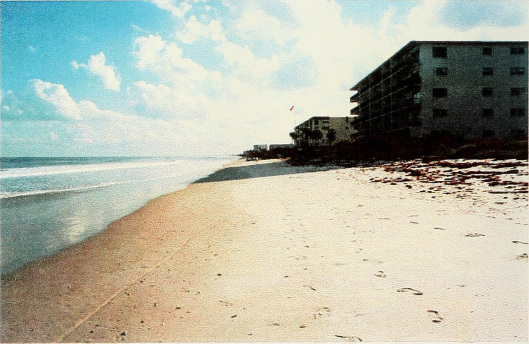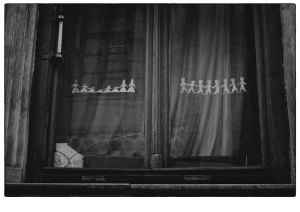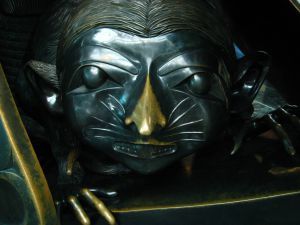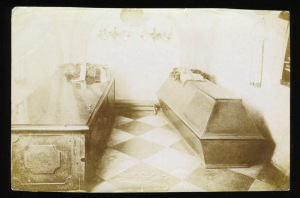Meg Sefton's Blog, page 76
September 25, 2016
The Old Woman from Ipanema
One of my favorite forms of the short story is “flash fiction.” This is variously interpreted, length being one defining element. Though I prefer working in the longer end of this, it is a challenge to see if I can convey something of a shapely story in 250 words, a word limit of some flash fiction journals and slam competitions. Though I leave the competition to the competitors, it is still satisfying when something feels finished. I don’t always know why, something clicks inside and says: “Done!” And then I am just pleased I somehow pulled it off. Alex Pruteanu, prolific writer and this month’s co-editor of Flash Frontier says this of flash fiction and the rationale behind his editorial choices:
“Something I always look for in flash fiction is urgency: the urgency of the writer, but also the situation that I, as a reader, am being presented with. I want to be thrown into a scene and left there for me to figure out how to get out. I like that. And so I made sure that a complete story wasn’t being spoon-fed to me, even severely compressed as it must be when the word limit is 250 words. I also enjoy controlled chaos and have a visceral reaction when I read well-constructed flash that seems out of control and about to explode in my face. And finally, I just like things that come at me from obtuse angles. It’s hard to somehow verbalize this but…flash fiction for me reads like Thelonious Monk’s piano playing. Something hits you from a never-before-seen angle. And you think: holy moly, this actually works.”
The theme for this month’s Flash Frontier is “Motels.” It is interesting to note the variety a well chosen, concrete theme can inspire, especially one that makes us think of travel, or even waywardness, an on-the-fringes existence. It doesn’t always have to suggest these things but a built-in opportunity exists for the writer who will grasp it: Tension. This is the torque of any story. The best stories employ multiple layers of human anguish and difficulty, not a melodramatic presentation of course, but a visceral one so that by the end we are so close to what is happening as to feel we are inside a world that is not our own. Good stories humanize us by letting us experience the lives of more people we can ever know in a lifetime. In this sentence about the function of stories, I am roughly paraphrasing Harold Bloom, one of our most erudite literary critics.
The Old Woman from Ipanema

Coastal processes assessment, Brevard County, Florida
The night we met at The Red Fox Lounge at the Mount Vernon Inn, I started to lose my vision. Lorna Lombey was singing ‘The Girl from Ipanema’ and handing out tambourines and maracas and castanets and suddenly there were two Lornas and two of you and two of everything else. After that weekend, the historic Florida inn would be destroyed by land developers and Lorna would no longer play where she and her late husband of thirty years had a Vegas lounge act.
I held your hand, tears in my eyes, and watched the room double.
“Let’s get a drink,” you said, knowing nothing. I had not been open about my health. Dating at fifty was one long sales pitch.
We checked into a room. You laid me onto the bed and hovered over me in twos. “I’ll never leave you,” you said. When I was twenty-five and newly married my husband said the same thing though I left him first.
In the morning, I woke to a note: Goodbye Angeline. My double vision had fled, long enough for me to drive home and watch the news that night, including news of the destruction of a Winter Park landmark, yet another link to our past, this David Lynchian concatenation.
My dog rolled over and I thought: This is the one true thing.
I scratched her belly.
“Our city will be lonelier without strange things such as these,” I said.
First published in Flash Frontier, September 2016


September 16, 2016
September 15: “Children of the New World” by Alexander Weinstein
If you love the short story as much as I do, you will likely be interested in what’s happening in the world of short stories. As Michael Czyzniejewski, professor at Missouri State and editor at Moon City Press notes, the National Book Award has not recognized a story collection this year. Provided in this post is a list of fresh off the press collections to suit your story appetite. Michael’s blog also covers at least one short story a day or more from a collection. Insight into one collection a day for a year: That’s a lot of collections! Maybe one day, stories will get their due. In the meantime, enjoy, and check out Michael’s blog.
Way to be, Story366! Today is an interesting day in that Karen is headed east right now, visiting her mom in Ohio. That means it’s me and the boys for the next four. Check back often to see how that’s going. Should be fun.
In other news, the long lists for the National Book Award came out today, and in the fiction category, there is a list of ten novels. My friend Amber Sparks was the first person I saw speak up about this on FB, noting that short stories are vital, there were a lot of great books released this year, the novel is so etc., etc., etc. I couldn’t agree more, because if you couldn’t tell, I kinda like short stories. Taking Amber’s lead, I put together a list of the story collections released in 2016 that I’ve covered so far on this blog, plus a bunch…
View original post 1,157 more words


August 31, 2016
Polygon by Jen Knox
A perfect beginning. I don’t think I took a breath that first paragraph. What a surreal scene described with compression and power. And how interesting: To take a catastrophic weather incident, describe its most sensually stunning details and then move two weeks ahead. In Florida in the fall we have had our share of devastating hurricanes, memorable enough to write about so I feel duly inspired. What weather occurs in your end of the world and how can it start a fantastic flash piece?
Branches thwack the pocked metal roof. My car windows are smashed, and I sweep shards from the seat before sitting behind the wheel. Boots crunch pedals. A warning hums, and I watch, dazed, as neighbors rush to close doors and cover cars with mattresses as the hail returns.
Two weeks later, we walk along the river with hands clasped, fingers held together like mittens. We are not cold, we are comfort. I always forget my sunglasses, and you always bring an extra pair, a ridiculous pair. Today, a red and black checkered frame, clunky readers that you position on the bridge of my nose, above my ears. They wobble as you kiss my cheek.
The weather is one shitstorm after another. Hail, tornado, extreme heat, extreme wind. There was something called a firewhirl forty miles from Cincinnati. But the skies are perfect now; the light is more flattering than before…
View original post 189 more words


August 29, 2016
Livraria Lello, Portugal
I knew something was calling me in Portugal. Beautiful, 1001 Scribbles.
Porto, Portugal
via Livraria Lello–The Bookshop — 1001 Scribbles


August 25, 2016
Daryl Sznyter, Summer 2016
This reminds me of ‘the year’ concept I played out in a piece of my own which was published a few years ago in Dark Sky Magazine online, even down to the length and tone, though I will have to say I love the author’s poetic approach. I would love to collect flash fiction prompts for a book and if I did, this would certainly be one of them. I didn’t work from a prompt but seeing a pattern makes me wonder if this would be a good one. I have copied and pasted my ‘year’ piece below and I will let you compare/contrast. Maybe you will want to use it as a prompt for your own work. If you do, post the link!

The year it snowed in Texas
The year it snowed in Texas was the year Mama bought me red cowgirl boots. It was the year I stomped on my daddy’s grave for leaving me, the year Mama smacked my legs in front of everyone. I was not going to the funeral unless I had the boots. Daddy had promised, promised, but Bobby Rearden said he was rotting with the maggots in his face. Well I stomped on Bobby too, stomped hard on his toes with my roach-killers and made him cry. I got sent home from school and Mama slapped me for sassing her. I slammed my door and wrapped up in a quilt like I was a hot tamale. The little ball of fire was moving through my body. It would move ever outward ‘til I was consumed, always consuming. It would make me sorry, that little ball, that little ball that was never quenched.
The year it snowed in Texas was the year my brother was born. It was the year my mama, standing in the flurries of that brief visitation of winter dust, made me love her, the filaments of her hair lifting in the puffs of wind. I didn’t know you could fall in love, just like that, at the sight of someone standing. How can a woman give away love so everyone felt it, even the birds, the trees, the snow itself, come to bless Kilgore. I would never love as she did. I would love only in that one brief moment. How we are spared from knowing who we are.
Years later, I found a note in my brother’s lonely apartment in L.A. “Bury me here,” he instructed in a scrawl on a map he had drawn of Woodlawn Cemetery. He had spent all his savings burying his lover and I couldn’t even buy him a headstone. The county would keep him ‘til they made him ash – my shame. I dyed my hair, changed my name, moved to Arizona. I camped beside a positive vortex but I could not escape Mama’s sad eyes watching me from the shadows of the twisted junipers.
First appeared in Dark Sky Magazine online
How to Fall Asleep and Never Wake Up
Daryl Sznyter
The year they discovered my best friend, twenty years old and silent under the heap of her wrecked car, I learned one can sleep forever and never wake up.
That year, her sister, only seventeen, ate magic mushrooms and lost her mind and her brother, fourteen, started running and stopped eating and I didn’t eat magic mushrooms but lost my mind anyway as everyone watched my skin, too white to be real, disintegrate before their eyes.
That year I flew to Colorado to see an urn surrounded by pointe shoes. It reminded me more of a wastebasket than the last I would see of the only person I actually spoke to. The cassette that held my entire life was broken. No – not broken – lost. Her sister ran naked through the street a few days later after ingesting a…
View original post 190 more words


July 19, 2016
You Will Not Cross Over Into Elysium
The sky was overcast, threatening a downpour. We were sprawled out on blankets enjoying a picnic, some of us having traveled overseas to celebrate the installation of a former classmate as senior lecturer at a university in Sheffield. Most of us had used the excuse to go to London, and some of us, like Trace and myself, to the Lake District. The lecture had been the day before and we were told, by a queer little woman who gathered trash off the lawns, to beware of the spirits who hounded people who didn’t belong. Oh, we had a laugh over that, oh my how we had a laugh! Especially here, now, under the darkening skies, champagne flowing, little crackers dotting tiny plates, each cracker topped with brie and preserves or pâté. We were drunk on the wine and with our foreignness and here was a woman reminding us the spirits of hell were against us too.
Our friend, our pride, the man who conquered Vanderbilt as an undergraduate and graduate and then went on to Yale was our entrée into this sacred, rarified world. And he always seemed to us the fresh, humble, brilliant man he had been to us in our undergraduate days when many of us, awkward, but bright, stumbled through our classes in a hungover daze. Henry never drank with us but instead worked a spell all his own, bringing diverse people together, creating parties, setting many of us up together. He was part magician and we felt he belonged to us though now it seems Sheffield had claimed him. There was a sadness to this somehow though we had most of us been apart from each other for years now, scattered to the winds, except Trace and I who married and settled in Cleveland. We were both artists, though Trace was the more successful, if income is the measure. The city was cheap enough to live in, and vibrant enough. New York would have been preferable, but we knew who we were.
“That woman was the gatekeeper to the Elysian fields,” said Trace. “It’s clear none of us are destined.”
“Hey, speak for yourself,” said Mark who ran a successful brokerage firm. Of all of us, he had seen the most wealth. And he was happily married with a wife, not from our set, but a lovely person, and children.
“I’m just saying,” said Trace, “be warned. Some of us are destined, some of us are not.” There was an edge to Trace I had never heard before, something approaching jealousy and despair and it surprised me, embarrassed me.
“I think what my darling is saying,” I said, “Is that none of us is above riding coattails. Let’s drink to a long life and success for all of us and as many of these trips as we can afford and our Senior Lecturer can tolerate.”
“Here! Here!” said our American friends raising flutes to the river drifting past, to the forest beyond, to the spirits waiting to scare us away from whatever blessing we found in this foreign land.
On the way home, I chided Trace. “Did you really have to do that? Do you think that’s any fun for me when you get that way?”
We were taking a walk through the woods before leaving for the train station. I broke away from him to walk ahead on the path. I was grateful I had worn low heals for the ceremony.
The stream bubbled next to us. It was beautiful here. I know it is next to impossible to get any kind of extended visa but I wished at that moment to disappear into the helplessly lush green, to become an inhabitant among those lichen covered trees, mossy stones.
There was a soft padding among the trees, the rain beginning to fall. I waited to walk with Trace. We huddled together. He reeked of wine. Another sojourner on the path directed us to the café. We laughed that it would likely be as expensive as the remote vegetarian bed and breakfast we had discovered in the Lake District. It was the same the world over: The more precious the commodity, the higher the price one pays for it.
We found a place in the cramped restaurant. Everyone was trying to get out of the rain for a while. I ordered some tea and scones and to my dismay, Trace a pint.
I was enjoying the warmth of the teacup when I heard a woman trying to comfort a baby. The poor thing was inconsolable. I went over to the woman and began a conversation. I asked her if I could hold her baby. She was at wit’s end and was amenable to the offer of my ministrations. I held the child on my shoulder and patted its back. When it was cradled in my arms, fear began to grip me.
Trace’s words at that moment struck me: “Some of us are destined, and some of us are not.”
It came to me swiftly then, remembering the secret of my miscarriage not long before our trip to come here, the Elysian fields and the possibility they are unattainable. A woman sitting in a corner of the café caught my eye. It appeared to be the woman who told us: “Beware the spirits who hound those of you here that don’t belong.” I couldn’t be sure but she was smoking a pipe and she had a gleam in her eye. I gave the baby back to his mother and clung to Trace’s arm. We would have each other, then, but Trace would never know. I would never tell him. I kissed his mouth and he smiled his boozy smile. “My girl,” he said.
Written for Nancy Stohlman’s 2015 Flash-Nano


May 26, 2016
Murderer in the Ice Hotel, Jukkasjärvi, Sweden

Jukkasjärvi: ICEHOTEL by azedkae, flickr
There is a murderer staying in the ice hotel. He sleeps on his ice bed which is covered in reindeer fur. He drinks Absolut vodka from a frozen shot glass. He cries to the walls made of the clear, pure, bubble-free ice harvested from the nearby Torne River. The snow cementing the ice block muffles his grief. It absorbs what he cannot bring himself to say: he killed his girlfriend when he caught her with another man.
The ice in his room shifts, sighs, drips. It is April 6, the end of the season. A dripping snow column beside his bed pulses with multi-colored LED lights, He is calmed by this, this lifelike column a beating heart, a gentle mother watching over him as he lies upon his bed. He finally falls asleep in a room that is twenty-four degrees Fahrenheit.
The next morning, the murderer goes on a tour to meet the indigenous people, the Sami or “reindeer people.” A group of men taking the tour are hung over and worried about getting to Heathrow. They make fun of the guide who fries reindeer meet before the fire in his ancestral tent. The guide tells them about his culture and the men ask him where he gets his clothes and the guide says his mother sews them. “Oh,” says one of them. “I would have said Saks.”
There is a woman with them too but she watches the fire intently. After they have eaten, they ride in sledges behind reindeer. The men are thrilled with the bull who is so fast, pulling each of them, they are tossed into the snow. The woman quietly rides in her sledge behind a cow. The murderer takes over her sledge when she is finished and doesn’t mind the pace.
He wonders if he could escape to this place, ingratiate himself among the people, learn the language, tend the herds. He wants to live among the reindeer with their large brown, wet eyes. Could he escape into the wilds of Lapland, where in winter the temperatures hover around zero and snow would not be shared with another for miles? He could change his name, adopt their belief in an animated world, exact his own punishment or wait for it to come.
As it stands, the ice hotel is melting. Soon it will no longer be structurally sound. He buys equipment in Jukkasjärvi and a pack of dogs using the remaining money in his account. The trees stand around him like thickly frosted decorations on a thickly frosted cake. He sets out on his sled, making his mark upon the snow, a mark that will be gone when the snow falls again that night, a wet spring snow but a blanketing one. Even the hotel will melt into the Torne River and be resurrected the next winter with no traces of anyone having slept there before.
* Some of the details regarding the hotel and tour are loosely based on Barbara Sjholm’s beautifully written travelogue, The Palace of the Snow Queen: Winter Travels in Lapland.
First published in Blue Fifth Review: Blue Five Notebook Series under the title “Melting”


March 21, 2016
new project: how to be alone
March 14, 2016
Mouse Woman

mouse woman
From the bronze Bill Reid sculpture, “Spirit of Haida Gwaii” at YVR.
It was a problem Nula Myska was unable to drift to sleep in the normal way. I say this because in her village, no one went to sleep without the others sleeping too. If someone was hungry, they all went hungry. If someone was laid off from their work, they all stayed home in protest. Imagine during times of war in the bombed out city when all wanted to die in solidarity with the innocent who had fallen. It took someone outside the city to convince them otherwise, someone as it turns out, who was able to use them for cheap labor and conscriptions into armies not their own. They were gullible, yes, and yet compassionate almost to the detriment of sense.
Ms. Myska was a spinster who lived in a tiny hovel at the edge of the city square. “Myska” seems the perfect name for her for it was a word meaning mouse. In fact, no one could remember if she had always been Ms. Myska or if the town had invented the name, her features and mannerisms were in alignment with said creature for she scurried a bit, scurried around the market. She nibbled, nibbled on what the cheese maker or baker featured among his wares, her little spinsterish whiskers quivering. When she was offered cider or wine, she held the cup in her tiny paws while she seemed to lap the sweet liquid. She was too old for anyone to have remembered her family. That was before the war, when bombs decimated stately old homes and government buildings. Ms. Myska’s family must have died then, her mother and father and brothers and sisters, though she never spoke of them. In point of fact she never spoke of much at all. In most villages she would seem as inconsequential as a crumb or a tiny pebble, the kind that gets caught in the ridges of your shoe and which you pry out with a rusty old knife.
But when her sleepless nights began, no one could see the moon or stars. A veil fell over the world. It was unknown at first the cause of the night’s deep impenetrable ink. Lanterns were commandeered for the purpose of checking on residents. It was thought perhaps this was a kind of plague though the only deprivation was a lack of natural light. The town leaders found almost everyone asleep except for Ms. Myska, who was, in fact, at the moment of their discovery, foraging in the forest for mushrooms and nuts. What are you doing? they said. Why aren’t you asleep? How can you even see? But she went on picking through the undergrowth, putting things in the pockets of her apron as if their questions were none of her concern. It became apparent as the leaders drew aside to discuss her, that there was something deeply disturbing to the disorder of a villager acting apart from her village and that this was having ramifications on the larger universe. Ms. Myska had indeed gone off the rails a bit. Perhaps she should not have been named for her animal likeness or once the likeness was realized, her name should have been changed to an animal that went to bed every night, a dove maybe, that coos from the eaves.
Also: Why had they let her stay in a little hovel, the kind a rodent might build for itself from scraps and bits of fabric and paper? It wasn’t healthy. They would move her immediately to one of the wealthier residencies where she would be fed sufficiently and given a warmer bed as well as have the chance to enjoy some semblance of fellow feeling, of humanity. Perhaps, sitting by a proper kitchen hearth, she would begin to speak of her life and the dark oppression of black nights would lift and Ms. Myska would receive her proper due.
Yet it was not that easy. Even after receiving a fresh frock, a bath, a full meal, Ms. Myska found it impossible to close her eyes. In fact, the intensity of her wakefulness increased so that it almost seemed as if Ms. Myska were reacting to the intensity of their sudden and inexplicable attentions. Maybe there had been something about the privacy of her wakefulness and the secrecy of her unnatural habits that had soothed her or felt somehow to be leading her to the natural disintegration of her mind, the steps necessary before her release into the void, the chaos of death. The village was too young to understand the steps leading into that final release. She was unconcerned about the skies. They were always looking for rational explanations. And why would this be her concern. In a month, a year, two years, she would take herself out beyond them and fall asleep on the earth.
And yet, she noticed her frantic concern. She resolved quietly to pretend and then perhaps they may leave her alone.
They had decided to host what they called soothing ceremonies. And so they made offerings to the sky to bring about once again the cycles of the moon and rotation of the stars and so they sent up to heaven in hot air balloons their prayers for one another and for the world so that a predictable peace would rule them. Many of the balloons caught on fire from the candle that gave the parachuted balloons loft and the glittery fabric that was supposed to inspire the stars to shine came falling down like ash and yet no light penetrated the thick black down that wrapped round them when the sun sank below the horizon.
Ms. Myska was treated like a queen. Preserving her modesty, they bathed her in milk while she wore her white gown, they bathed her under the wisteria trellis. They added hyssop and lavender to their ministrations as well as the sound of gentle percussion instruments simulating rain. They laid warm towels over her eyes and wrapped her head in a cotton wrap infused with rose oil. They gently massaged her hands and feet.
Ms. Myska, buried under fabric, soaking in warm milk, wanted to bring her little paw hands to her mouth to nibble on a nonexistent crumb she often kept in her pockets but now no longer had. They believed she wanted fatty lamb and huge boiled potatoes, pies and pastries, sweets they crafted on slabs of marble with precious sugar and chocolate. She wanted to bring her hand to her mouth out of habit. She at least wanted to stroke her whiskers but they had plucked them so there was nothing remaining. Her descent into the animal realm and then beyond that to the subanimal realm of dirt and water and remains and then yet further still to the underworld, her destiny, had been met with protest, resistance. You will feel more human, they said, let us help you. She felt just the opposite.
Every night, Ms. Myska feigned sleep, although, in actuality, that is where the problems really began because what happened is that the skies unleashed a torrent, which as it turn out was worse than complete blackness for the water could not be kept back but seeped into their homes under door frames until at last it had risen to the level of their windows and their furniture and cows started floating away. Houses and buildings were becoming unmoored. What had happened? They wondered one night, sitting on a roof top, the falsely sleeping Ms. Myska sleeping on the pallet they had brought with them.
Because of the extreme compassion of the village, they began to realize they may have brought this onto themselves some of this natural disaster. Why hadn’t they just accepted Ms. Myska for who she is? Why had they sought in her so quickly an instant scapegoat? And so they let Ms. Myska go. They gave her a boat to be free and do as she wished and as soon as she returned to her hovel, the water had receded though her little spot had never been effected. It was dry as a bone, just as an old lady’s hovel should be. At last the young ones will let her do which they all will some day must and inside she did not feel them crowded around her anymore but blessedly at a distance, their benign tolerance sufficient.


February 24, 2016
The Body

Early 1900s snapshot of coffin and casket, Bat Country Books, LLC flickr
The body is in a bag. The body is on a cart. The body rolls out of the bedroom. The body rolls out of the living room. The body rolls by the family pictures. The body rolls through the kitchen. The body bumps over the threshold to the garage. The body rolls past the family cars. The body rolls past the hedge trimmed just last week. The body rolls by the neighborhood children. The body stops so a child might tie a red balloon to the cart. The body bumps down the sidewalk. A girl showers it with flowers. The body sits next to a homeless man for a while. The man unzips the bag and relieves the body of its wedding band. The body leaves the man behind and zooms through the traffic. The body runs a red light. Cars careen around the body. There is screeching, smashing, crunching, grinding, someone screaming, metal and glass flying.
The body goes to a museum. It rolls past the canvases thick with paint, heavy with fevered dreams. The body visits animals at the zoo. It is shat upon by a monkey who tries to feed it peanuts where a mouth should be. The body rolls past a river where it races a barge filled with coal. At the dock, the body is saluted by a soldier. At the church, it is hurriedly blessed by a Father who sprinkles holy water on the shitty body bag. Downtown, a whore straddles the body and gets off. A dope dealer smuggles his stash under the torso.
At the hospital, nurses shake their heads knowingly as the body rolls through the halls and out the exit. At the bank, the teller willingly gives over all of the money to the body she’s so frightened. The money flies out of the surrendered bag as the body flies down the street. Men and women and children take what they can. The children buy candy. The men and women go to bars, take their spouses out, plan parties.
The body crushes a wife beater. The body rolls over a rapist. The body cuts a politician off at the knees. The body goes to a concert. He rolls through a mosh pit. He helps carry a crowd surfer. The concert goers find the dope and are grateful. The body gets arrested. The body gets put in jail. The body busts out and goes on the lamb.
The body finds a family who needs a body, a family who isn’t upset by a body but who just wants some other body to hang out with somewhere on the outskirts of town where a body can be a somebody and not the nobody which many would have him believe he is.
First appeared at The New Absurdist and later, Bizarro Central, Flash Fiction Fridays


Meg Sefton's Blog
- Meg Sefton's profile
- 17 followers










